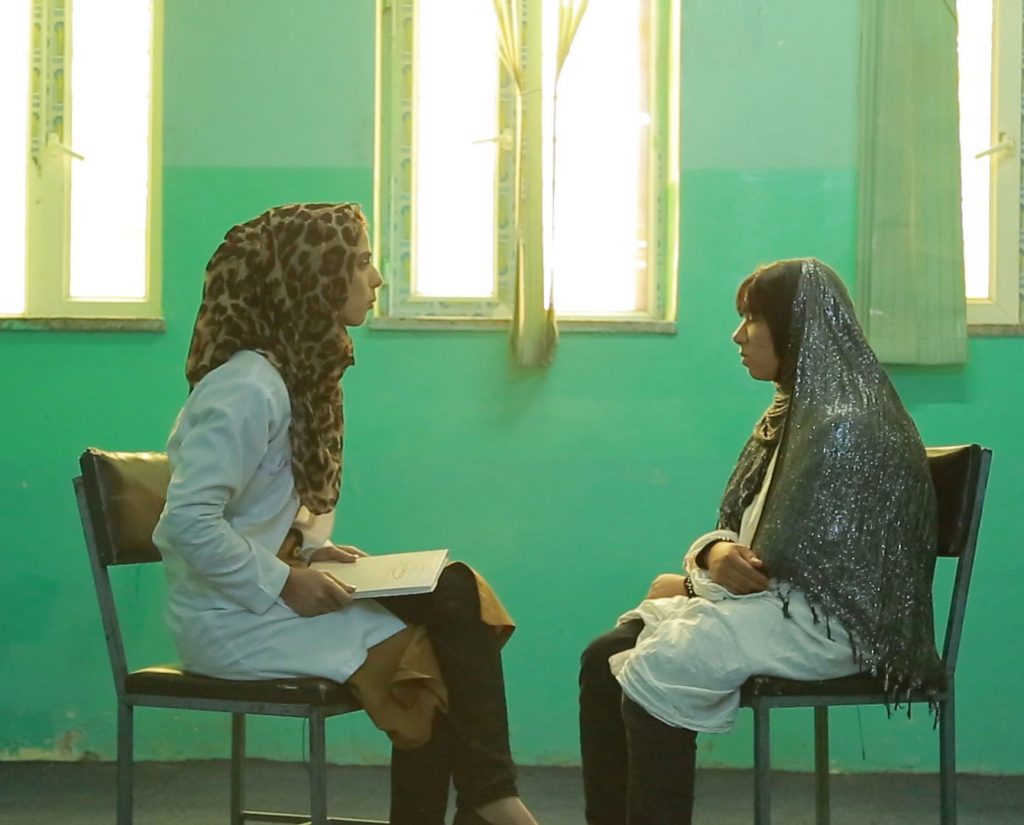
Support Services For Survivors Of Gender-Based Violence
Gender-Based Violence and Prevention Response
Each incident of gender-based violence is a violation of an individual’s rights that can have a significant impact on a survivor’s safety, health and quality of life. Survivors of GBV can suffer significant health consequences, including unwanted pregnancies, HIV and other sexually transmitted infections, physical trauma and even death. GBV survivors also experience a range of psychological and social consequences, including shame, guilt, depression, isolation, abandonment and abuse by family members.
All GBV survivors have a right to care and support. However, high-quality and compassionate services often are not available in emergency settings, and survivors face multiple barriers to receiving support, including a fear of perpetrators, social stigma, and discriminatory laws and policies.
Our Response
International Medical Corps is one of the few humanitarian organizations that delivers specialized support services for survivors of GBV in emergency settings. Through survivor-centered GBV case management and psychosocial support services, trained caseworkers offer individualized, ongoing assistance to help survivors recover from traumatic incidents and receive help based on their needs and choices.
GBV caseworkers listen to survivors, validate their experiences and provide compassionate care. They help survivors access healthcare, justice and other services. They work with survivors of intimate-partner violence to develop safety plans, and establish support systems and meet personal goals. We integrate GBV case management services into safe spaces and trusted community structures that women and girls can visit without suspicion.
In many settings, we also offer GBV case management services through health centers where survivors can access both medical and psychosocial support. Where women and girls may have trouble accessing static services due to conflict or displacement, we establish mobile teams of caseworkers who can reach women and girls through regular visits to remote communities. And during times when face-to-face services are not possible—such as during the COVID-19 pandemic—we provide assistance via telephone or internet.
Examples of how we deliver focused support services including the following:
SOUTH SUDAN, supporting remote, conflict-affected communities.
Since civil war erupted in 2013, millions of South Sudanese have been forced to flee their homes. As the conflict has continued, untold numbers of women and girls have been targeted for abduction and rape. In an environment of rampant lawlessness and insecurity, women and girls face additional risks of inter-and intra-communal violence, as well as family and domestic violence. To address survivor needs across an expanse of hard-to-reach areas of the country, we have established safe spaces where women and girls can access help. We train community-based GBV taskforces to provide psychological first aid and safe referrals for survivors. Through safe spaces, we support livelihoods activities to reduce women’s economic vulnerability, helping them organize into village savings and loans associations. We also train doctors and nurses to care for survivors of rape and domestic violence, and have worked with the government to integrate care for GBV survivors into the standard training curriculum for midwives.
IRAQ, catering to different needs in a complex environment.
International Medical Corps provides focused GBV response services in northern and south-central Iraq, where we support Iraqis displaced by earlier conflicts as well as communities of Syrian refugees in camp and non-camp settings. We have established women’s and girls’ safe spaces that offer a range of services and activities, in both camps and local communities. We train Iraqi and Syrian women to provide case management and psychosocial support services to survivors through these safe spaces. We also have three-person mobile teams connected to safe spaces, ready to deploy to nearby locations to support women and girls when violence occurs. Moreover, we have a dedicated team working with adolescent girls to respond to their specific needs.
NIGERIA, supporting local initiatives to increase opportunities for women and girls.
The protracted crisis in northeast Nigeria, which has involved forced displacement, abductions and trafficking, has exacerbated pre-existing gender inequalities. The ideology of armed opposition groups and the country’s general insecurity threaten women’s and girls’ access to essential services, including school and healthcare. We have established partnerships with women-led organizations and associations, helping to reach women and girls through discreet networks. We have established safe spaces near markets within communities and camps of displaced people, where women and girls can find refuge from their regular routines and participate in educational and social activities. On select days, these spaces are reserved for adolescent girls, who gather for life-skills classes and other activities. We also provide individualized GBV case management services for survivors of GBV, through safe spaces and remotely by phone where needed.
Early medical interventions after incidents of rape can prevent unwanted pregnancy, infections and HIV. We have provided training to doctors in more than 20 countries on how to deliver clinical care and basic psychosocial support to rape survivors.
For many women, home is not a safe space. The majority of cases reported to us involve domestic violence—including sexual, physical and emotional violence perpetrated by husbands or partners.
In emergency settings, about half of all reported cases of sexual violence involve children.